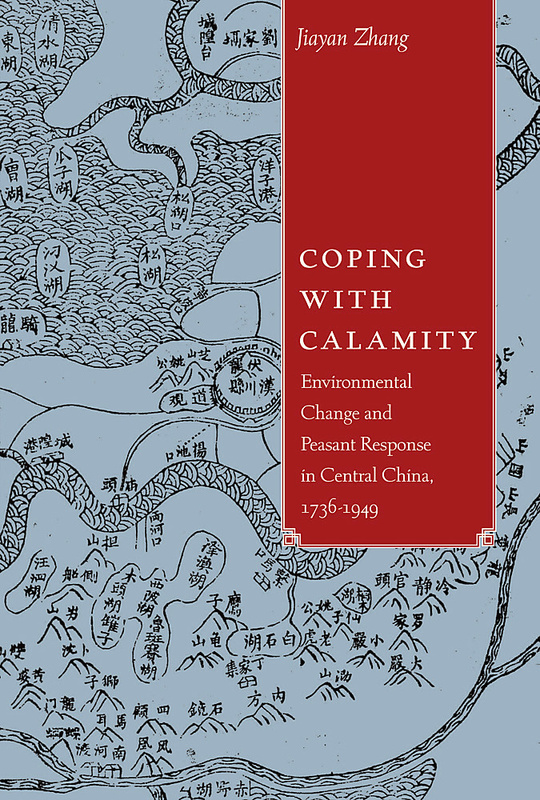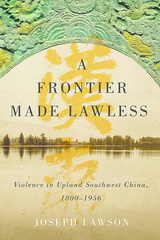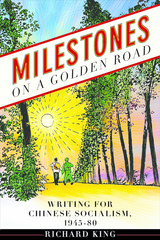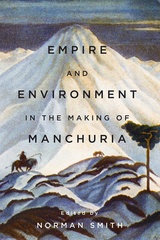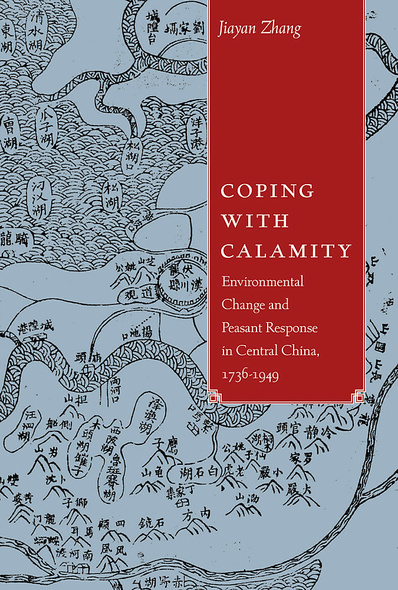
Coping with Calamity
Environmental Change and Peasant Response in Central China, 1736-1949
The Jianghan Plain in central China has been shaped by its relationship with water. Once a prolific rice-growing region that drew immigrants to its fertile paddy fields, it has, since the eighteenth century, become prone to devastating flooding and waterlogging. Population pressures and the demand for farmland have put increased pressure on the area’s dike system, leaving large populations vulnerable to frequent water calamities. Jiayan Zhang consults early records of catastrophic water events and explores their role in shaping Jianghan society in the Qing and Republican periods. In a constantly shifting environment, the peasants of Jianghan were forced to adapt their farming methods; cooperate on complex projects like dike building; and even organize social structures, tenancy arrangements, and lifestyle around the pressure and uncertainty of their environment. The first environmental and socioeconomic history of the region, Coping with Calamity considers the Jianghan Plain’s volatile environment, the constant challenges it presented to peasants, and their often ingenious and sophisticated responses. It is an essential contribution to our understanding of Chinese peasant culture and to a little-studied region, considered one of the most important in China’s agricultural history.
This book will interest students and scholars of Chinese history, rural and agrarian studies, and environmental history.
Awards
- 2014, Winner - Academic Excellence Award, Chinese Historians in the United States (CHUS)
- 2015, Winner - Outstanding Research and Creative Activity Award, College of Humanities and Social Sciences, Kennesaw State University
Coping with Calamity is the first English-language book on the ecology, economy, and society of the Jianghan plain, one of the most important agricultural areas in late imperial and modern China. It is unique in interpreting rural economic and social institutions in modern China using an environmental approach. Zhang’s book is essential reading for students of rural China and modern Chinese history.
The environmental history of China is still a much under-studied area, and Zhang’s book is a very welcome and important contribution to the field. He has consulted an extensive array of sources and has also lived and worked on the land of this region, which gives him unique insight. His empathy for its people and his understanding of the impact of the environment on every level of their lives permeates the discussion, adding depth to the scholarship.
Introduction
1 Changes in the Environment of the Jianghan Plain
2 Water Calamities and the Management of the Dike Systems
3 The Dike Systems and the Jianghan Economy
4 Agriculture, Commercialization, and Environmental Adaptability
5 Tenancy and Environment
6 Fisheries and the Peasant Economy
7 A Water-Rich Society: Socio-Economic Life in a Marshy Kingdom
Conclusion
Appendix: The Yield of Rice in the Jianghan Plain in the Qing and the Republic
Glossary; Notes; References; Index

